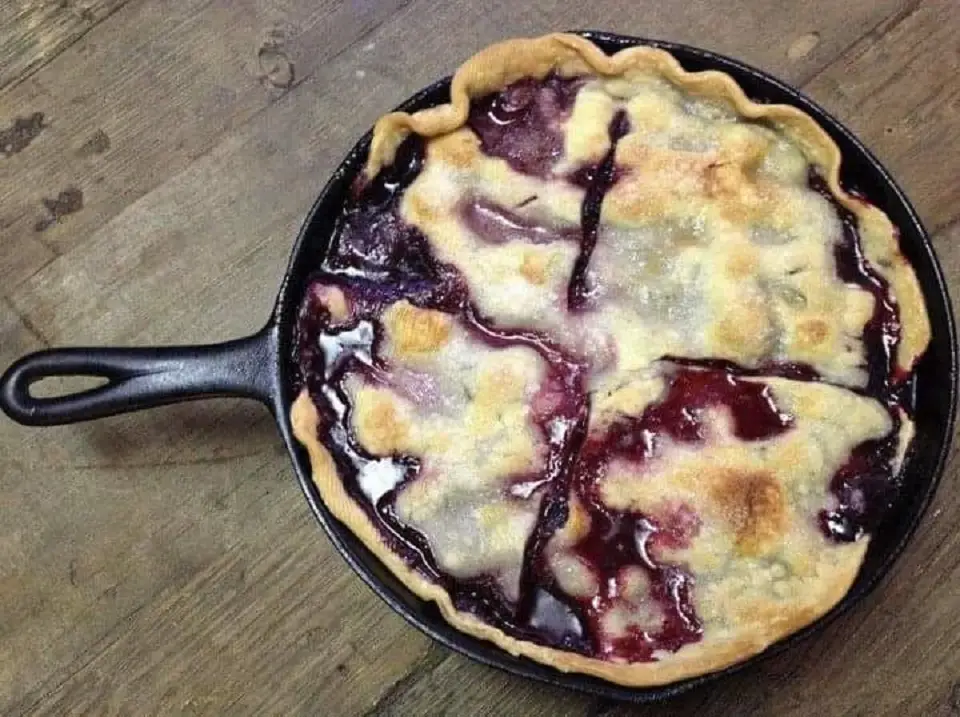If you're new here, you may want to subscribe to my RSS feed. Thanks for visiting!
Cast iron Dutch ovens and cookware have been an Ozark tradition for centuries. Home cooks still depend on their cast iron for home cooking.
Lots of families in the Ozarks have cast iron cookware that has been passed on down from grandma and still cooks meals for the family every day. Cast iron cookware will last for generations.
Article Contents
History Of Cast Iron Cookware
Cast iron cookware came across the sea with immigrants from Europe and was one of the precious items that simply had to go with the family. Then these useful kettles, skillets and cast iron pots made their way across the plains, into the mountains and wherever pioneer families settled.
Raw cast iron is so durable and dependable that many pieces have been handed down to family when grandma got too old to lift it. Today’s cooks who want to learn to use cast iron cookware buy new selections that fit their needs and are every bit as functional as the old.
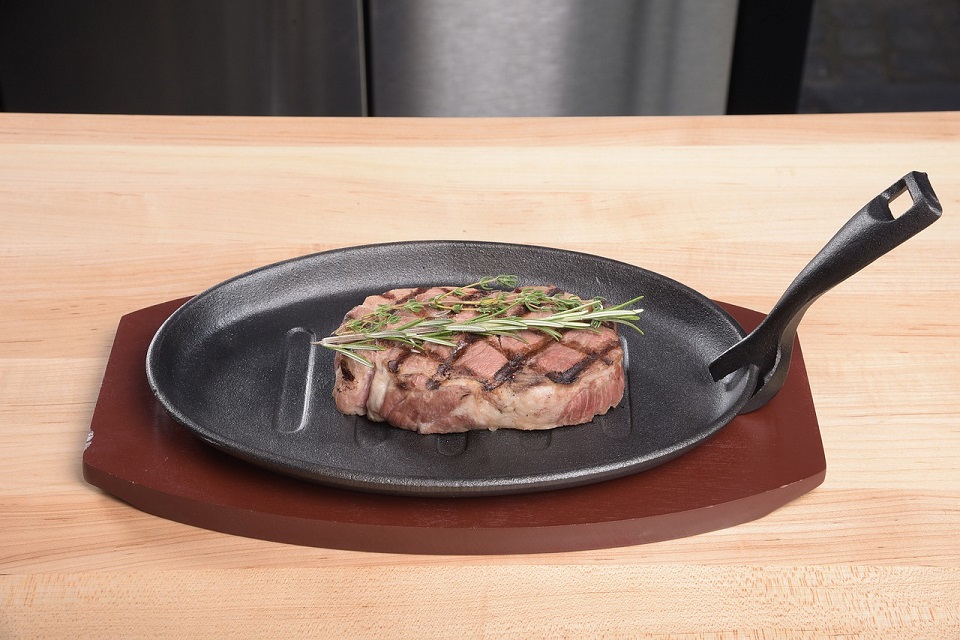
The Most Popular Cast Iron Cookware
The main pieces of cookware in cast iron are:
- Skillets
- Sauce Pans
- Dutch ovens
The two most popular types of cast iron cookware:
- Enameled cast iron
- Raw Cast Iron
How Is Cooking With Cast Iron Cookware Different?
Good cast iron cookware heats up and cooks evenly, maintains a consistent temperature, and holds heat naturally for a long time. This enables you to cook at hot temperatures without burning your food and likewise cook long and slow with dependable results.
When cooking on the stovetop you will notice a difference with more easily controlling cooking temperature, and cakes, pies and stews in the oven will be easier to keep uniform from the edges to the middle.
Cooking outdoors becomes much more manageable because fluctuations in heat over a campfire or propane cooker will not result in problems with food overcooking. You’ll find it’s much harder to burn food when cooking with cast iron.
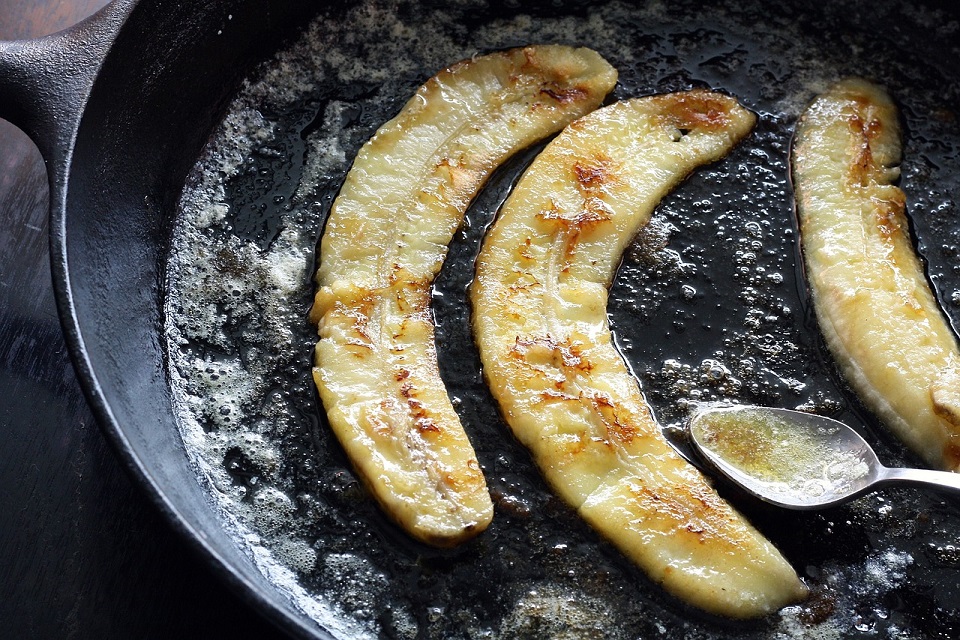
How Do You Care For Cast Iron Cookware?
Stories about keeping cast iron cookware clean have been a drawback for many folks who might have already bought them, but the simple fact is that they are just a cooking pot – no big mystery.
Bare metal cookers do require some different care tactics, but that’s not a big deal at all.
- Season the cookware when you get it with oil and heat
- You can get a preseasoned Dutch oven
- Cook whatever you want in them
- With oily foods cleanup can be as simple as wiping them out
- If food really sticks just boil some water until it loosens, then clean with a wooden spoon
- Re-season if you need to
The reason you may have heard that you shouldn’t use dish soap to clean them with a wire scrubber is because you are protecting the coating that builds up and protects the metal – also improving cooking in the future.
But remember, it’s just a kettle. You’re probably not going to break it. If it needs re-seasoned after cleaning then it’s no big deal.
Enameled cast iron cookers have the same great cooking properties but are much easier to clean. Even with enamel coating it’s best not to use metal utensils. Stick to wood or plastic.
What Can You Cook In A Dutch Oven?
A Dutch oven is a self contained cooking pot that includes a kettle and a lid at minimum. It’s designed to cook with even heat distribution though the heat source may not be. With the lid on Dutch ovens are best for baking and cooking:
- Pies and cakes
- Bread
- Desserts
- Casseroles
- Soups and stews
- Big cuts of meat
When cooking these items I like to keep the Dutch ovens separate, meaning that bread, pies and cakes cook in one and another is dedicated to soups and stews. This keeps the flavors true and also you’ll find that the conformation of the Dutch oven works better for specific things.
Dutch ovens used on the stove top are great for simmering soups and stews that you may want to stir often by just leaving the lid off. When your soup is done just put the lid on, turn the stovetop on low and let it simmer in the ingredients.
Using Dutch Oven & Cast Iron For Outdoor Cooking
Cast Iron cookware is by far the most durable choice for camping and outdoor cooking. No matter if your fire is too hot or too cool this type of cookware will even the odds.
The classic Dutch oven for cooking on a campfire has legs to hold it above the coals and a concave lid to hold coals on top which permits baking evenly from top and bottom.
This type of Dutch oven, any type of cast iron sauce pan and skillet are great to pack along on your car camping trip. Food cooked this way will taste better than anything you cook at home in your slow cooker and will impress your guests with your cooking savvy.
Dutch Oven Guide For Charcoal Briquettes
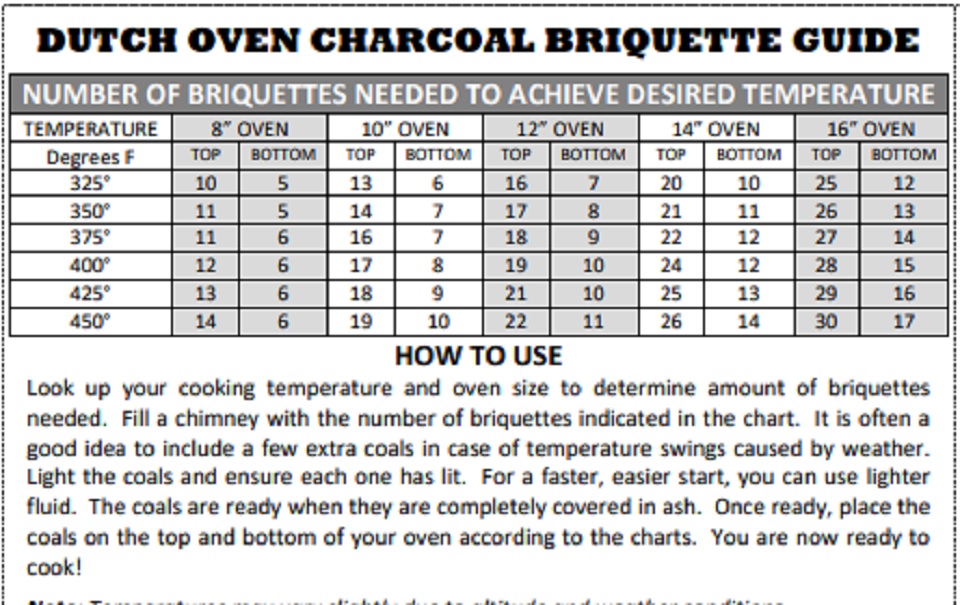
Are Acidic Ingredients Bad For My Dutch Oven?
Most ingredients are not acidic enough to cause problems in a Dutch oven when cooking.
Ozark folks have learned not to leave food in the pot when the meal is over. You can just move the leftovers into another container, then clean your cast iron like usual and put it away.
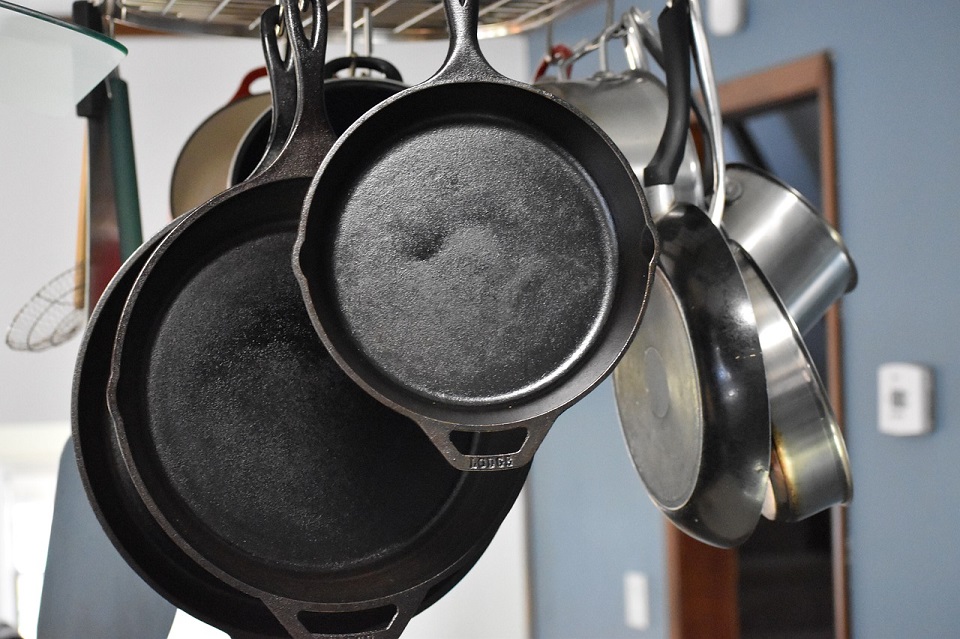
Benefits Of Cooking With Dutch Ovens And Cast Iron Cookware
Ozark cooks love their cast iron cookware. It makes the best steak and gravy! Start by browning both sides of the steak in cooking oil with very high heat.
Remove Dutch oven from the heat and add a cup of water and a couple cans of mushroom soup, then just pop in enough potatoes for everyone. Cover and put it in the oven at 350 or back on the coals for 1 hour.
Why Ozark Cooks Love Cast Iron
- Cast iron holds heat and cooks great at high temperatures.
- It’s almost nonstick when well seasoned.
- It’s not hard to keep seasoned. Keep it clean, oiled, and use it often.
- Well seasoned cast iron coating is tougher than you may think. A little water or dish soap, won’t hurt it. Just dry it, heat it, oil it then put it away.
- Many skillets and Dutch ovens have been passed down through Ozark families for generations. These things last forever.
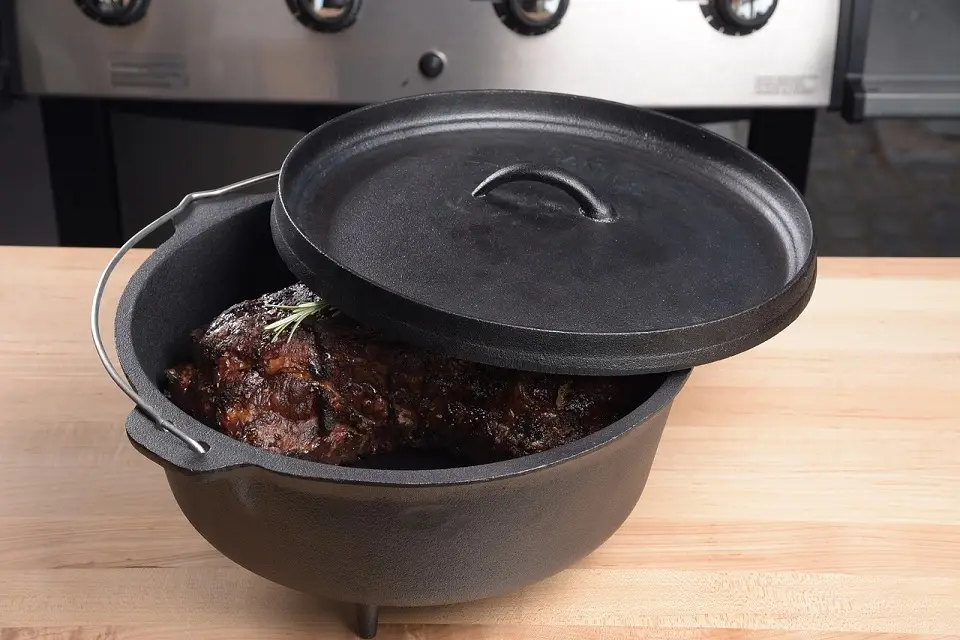
Why Use A Cast Iron Dutch Oven Instead Of Other Cookware?
Typical of cast iron cookware, cast-iron Dutch ovens have the advantage of even heating, they hold heat well, and the lid seals very nicely. They're perfect for cooking a large cuts of meat or large casseroles.
After cooking in the oven they will hold heat for a long time, so you can move it right on to the table. If you choose a porcelain or enamel coated pot like Le Creuset, cleanup is really easy and will look fantastic.
Dutch Ovens And Cast Iron Cooking - The Takeaway
If you choose to add a Dutch oven & cast iron to your cooking inventory I think you will love your decision for the rest of your life.
Taking a dish cooked in cast iron to a family get-together leaves a lasting impression and everyone will think your recipe tastes so much better!
Get the Wiki lowdown on Dutch oven history here
